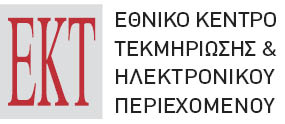This item is provided by the institution :
 National Documentation Centre (EKT)
National Documentation Centre (EKT)
Repository :
Institutional Repository of EKT "Ariadne"
| repositories EKT

